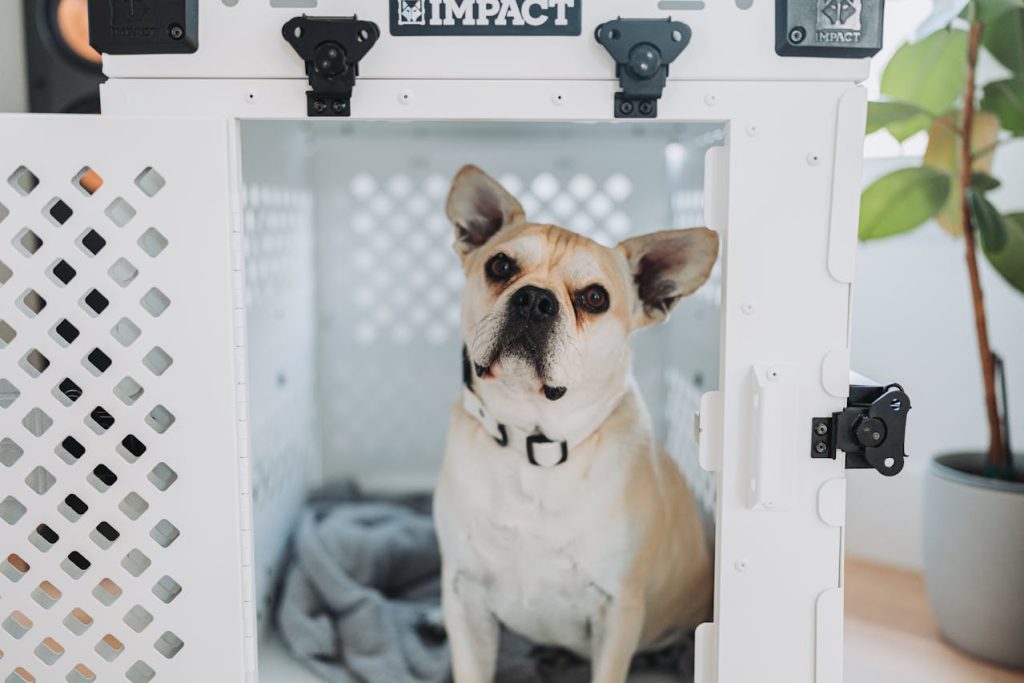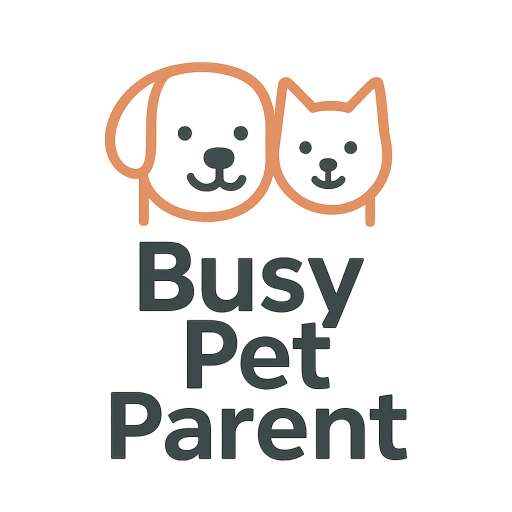
15 Effective Tips on How to Stop Dog Whining in Crate at Night
Nothing disrupts your evening like a dog whining endlessly from their crate. Whether you're dealing with a puppy adjusting to crate training or an older dog experiencing separation stress, knowing how to stop dog whining in crate is essential—especially in an apartment where neighbors can hear every whimper.
Crate whining can stem from anxiety, boredom, lack of routine, or even accidental reinforcement. But don’t worry—there are proven, gentle solutions that can help your dog settle down and sleep peacefully through the night. Below are 15 actionable tips designed for apartment dwellers and busy pet parents alike.
1. Rule Out Potty Needs First
The first thing to check when your dog is whining in their crate is whether they genuinely need to relieve themselves—especially puppies under 6 months old or dogs with medical conditions.
If your dog just had a potty break but still whines, you can safely explore other behavioral reasons without guilt. But always give them the benefit of the doubt when you're unsure.
2. Don’t Reward the Whining With Attention
It's tempting to talk to or approach your dog when they cry—but doing so may teach them that whining gets them what they want. This can accidentally reinforce the behavior, making it worse over time.
Stay calm and quiet. Only reward your dog with attention or a release from the crate after they've been quiet for several seconds.
3. Make Sure the Crate Location Feels Safe
Some dogs cry because they feel isolated or exposed. Placing the crate in a quiet corner of your bedroom, near your bed, or even beside a familiar scent (like your worn t-shirt) can ease their stress.
Avoid high-traffic, noisy areas or placing the crate in cold or drafty spots. A calm crate location supports faster adaptation.
4. Gradually Build Crate Tolerance
If your dog isn’t yet crate trained, whining is often a sign that they feel trapped or unsure. Start with short, positive crate sessions during the day with treats, praise, and an open door.
Once your dog willingly goes inside and stays calm, gradually increase duration and introduce nighttime crate use. See our crate training in apartments post for step-by-step guidance.
5. Add a Calming Chew or Enrichment Toy
Giving your dog something to do while crated can ease anxiety and redirect energy. Try a long-lasting chew, frozen Kong, or puzzle toy filled with a small bedtime snack.
Make sure it’s safe for unsupervised use. Avoid high-energy toys before bed—choose calming activities that promote licking or gentle chewing.
6. Use a Sound Buffer Like White Noise
If your dog whines at outside noises, try playing gentle white noise, classical music, or a dog-calming soundtrack near the crate. This masks hallway sounds, neighbors, or traffic that may be triggering your pup.
White noise is especially useful in apartments, where acoustic echoes and unfamiliar noises are unavoidable.
7. Ensure the Crate Is Comfortable
A crate that’s too hard, cold, or bare can cause physical discomfort, especially overnight. Line it with a soft crate mat or orthopedic bed and consider a breathable cover to make the space feel den-like.
Avoid stuffing the crate with toys or bulky items that restrict movement. Comfort often comes from simplicity, warmth, and familiarity.
8. Avoid Punishing Whining
Yelling, banging the crate, or scolding your dog for whining may suppress the behavior temporarily—but it builds fear, not trust. It also fails to address the underlying reason for the noise.
Focus on addressing anxiety, overstimulation, or unmet needs rather than using discipline. A calm, patient approach yields better long-term results.
9. Offer a Comfort Object That Smells Like You
A recently worn t-shirt or blanket with your scent can reduce nighttime distress. This simple trick can work wonders for puppies or newly adopted dogs adjusting to sleeping alone.
Place the item in the crate corner (away from chewers) to promote security and bonding without needing constant physical presence.
10. Don’t Use the Crate for Time-Outs
If your dog associates the crate with punishment or banishment, they may whine from fear or confusion. The crate should be a calm, positive space—not a jail cell.
Redirect undesired behavior elsewhere and continue pairing the crate with relaxation, treats, and rest. Consistency is key to reversing negative associations.
11. Watch for Signs of Separation Anxiety
If your dog panics when left alone—pacing, drooling, biting the crate, or whining nonstop—true separation anxiety may be the root. This goes beyond crate dislike.
In these cases, professional help and a structured desensitization plan may be needed. See ASPCA’s guide to separation anxiety for more.
12. Rule Out Medical Discomfort
Pain, digestive upset, allergies, or bladder issues can cause whining—especially at night when your dog has fewer distractions. Senior dogs or those with orthopedic concerns may also struggle to settle.
If whining is sudden or persistent, check with your vet to rule out underlying medical causes. Addressing pain can often eliminate crate struggles entirely.
13. Exercise and Mental Stimulation Matter
Dogs who don’t get enough physical and mental stimulation are more likely to act out in the crate. Daily walks, sniff breaks, play sessions, and food puzzles can burn off energy and reduce nighttime restlessness.
Especially in apartments, indoor exercise matters. Check out our crate-free enrichment and nighttime anxiety guide for added ideas.
14. Be Consistent With Your Night Routine
Inconsistent routines confuse dogs and increase anxiety. Try to stick to a consistent wind-down pattern before bedtime—walk, crate time, lights off, etc.—to create predictability and emotional safety.
Predictable cues signal your dog it’s time to rest. Over time, even anxious pups will start settling automatically as part of the ritual.
15. Consult a Trainer or Behavior Specialist
If you’ve tried everything and the whining persists, it’s time to consult a certified dog trainer or veterinary behaviorist. Chronic crate stress can lead to bigger issues if left unchecked.
Many trainers offer virtual sessions if you're in a small space. With professional guidance, most dogs can overcome crate-related anxiety and sleep through the night peacefully.
Final Thoughts
Learning how to stop dog whining in crate takes patience, consistency, and empathy. Your dog isn’t trying to be difficult—they’re likely scared, uncomfortable, or confused. By addressing their needs and building positive crate associations, you’ll create a bedtime routine that works for both of you.
The good news? With the right tools and a calm approach, even the noisiest nights can turn into restful evenings in your apartment—no earplugs or complaints required.
Frequently Asked Questions
Why does my dog whine when crated at night?
Whining can be caused by anxiety, boredom, lack of potty access, medical issues, or not being fully crate-trained. Identifying the root cause is key to applying the right solution.
Should I ignore my dog’s whining in the crate?
If you’re sure your dog doesn’t need to go outside and isn’t in pain, it’s best to ignore brief whining. Avoid responding immediately, or your dog may learn that whining gets them attention or freedom.
How long will it take for my dog to stop whining in the crate?
It varies. Some dogs adjust within days; others need weeks of consistent crate training and nighttime routines. Anxiety-based whining may take longer, especially without professional help.
Are calming products helpful for crate whining?
Yes. Pheromone diffusers, calming chews, and white noise machines can all help reduce stress, especially when used alongside crate training. Always choose vet-recommended products.
What if my dog only whines in the crate when I leave the room?
That could be a sign of separation anxiety. In that case, practice short departures and desensitization exercises. Gradually build tolerance and keep exits low-key to avoid triggering stress.

Join the Busy Pet Parent Newsletter!
Get easy routines, time-saving tips, and the latest gear reviews—delivered straight to your inbox.
Perfect for busy pet owners, apartment dwellers, and anyone who wants a happy, healthy companion (without the stress).
Exclusive guides & checklists
Product recommendations & deals
No spam—unsubscribe anytime!




